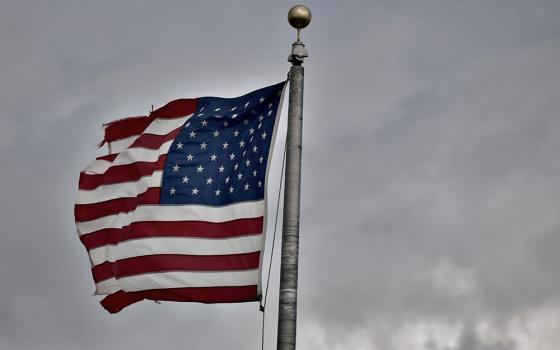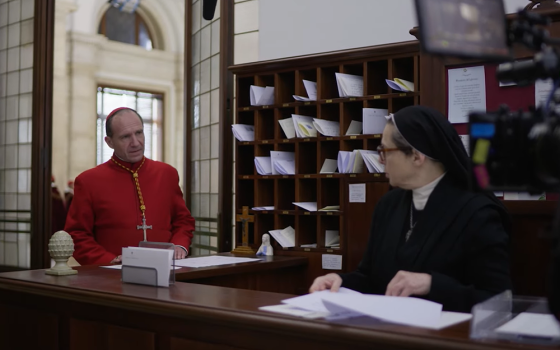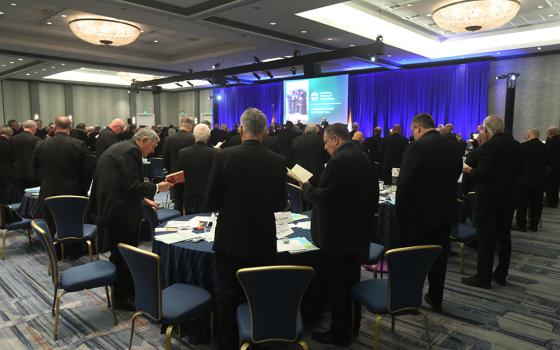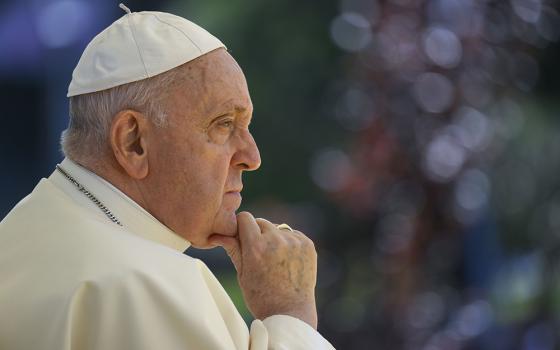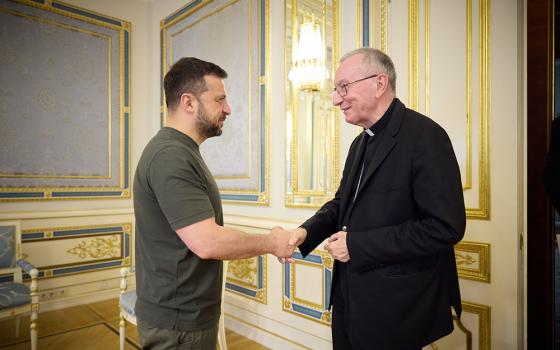Cardinal Marian Jaworski, a close friend of St. John Paul II and former Latin-rite archbishop of Lviv, Ukraine, died Sept. 5 at the age of 94.
His friendship with John Paul began in the 1950s and lasted until the pope's death in 2005.
Jaworski was one of the very few guests who regularly stayed in the papal apartments when visiting Rome and, as Pope Francis noted in his message of condolence, it was Jaworski who gave the anointing of the sick to John Paul the night before he died in 2005.
Francis said the late cardinal's life was defined by his episcopal motto, "For me, to live is Christ." The motto "defined his way of thinking, evaluating, making choices, making decisions and determining the point of view of his research."
Everyone who knew him saw him as "an extremely just, sincere, courageous man who loved the church. He left a worthy witness of priestly zeal, erudition, fidelity to the Gospel and responsibility for the community of believers," Francis said in the message, which was published Sept. 8 by the Vatican.
Jaworski had been a "secret" cardinal for three years.
In 1998, St. John Paul named Jaworski and Archbishop Janis Pujats of Riga, Latvia, cardinals "in pectore," literally meaning "in the heart" or secretly. The two did not actually join the College of Cardinals until 2001, when their names were announced publicly.
John Paul never said why he named the two secretly, but when he announced their names, as well as that of Archbishop Lubomyr Husar, head of the Eastern-rite Ukrainian Catholic Church, he said that by giving them red hats, "I intend to honor their churches which, especially over the course of the 20th century, were harshly tried" under Soviet communism.
Jaworski and the late Polish pope shared a keen interest in philosophy, and the cardinal led a church commission responsible for Karol Wojtyla's pre-papal works.
Born into a Polish family Aug. 21, 1926, in Lviv, when Western Ukraine was Polish-ruled, Jaworski completed his priesthood training in Poland after being expelled from Ukraine in 1945 under a Soviet-directed "repatriation drive."
After ordination in 1950, he served at a parish on the Ukrainian border, before returning to Krakow to earn a doctorate in theology at Jagiellonian University.
He lived opposite the then-Fr. Karol Wojtyla, the future St. John Paul, at Krakow's St. Florian Parish, and moved with him when he was assigned a new accommodation in nearby Kanoniczna Street.
He was given an apartment at the archbishop's residence when the future pope was appointed head of the Krakow Archdiocese in 1964.
In 1976, he became dean of Krakow's Pontifical Theology Department, and after it was renamed the Papal Theology Academy, he served as rector from 1981 to 1987.
Despite his postwar expulsion, Jaworski maintained his ties to Ukraine. In 1984, unable to appoint a new archbishop because of Soviet pressure, the pope asked Jaworski to administer the Lviv Archdiocese with a temporary headquarters in Lubaczow, Poland.
In January 1991, as Soviet rule tottered a year before Ukraine's full independence, the pope appointed him archbishop, entrusting him with the task of rebuilding a church that had been left in tatters by communism.
In 1992, Jaworski was elected president of a revived Latin-rite bishops' conference for Ukraine. He retired in 2008.
Jaworski's death leaves the College of Cardinals with 219 members, 122 of whom are under the age of 80 and therefore eligible to vote in a conclave.
Advertisement
